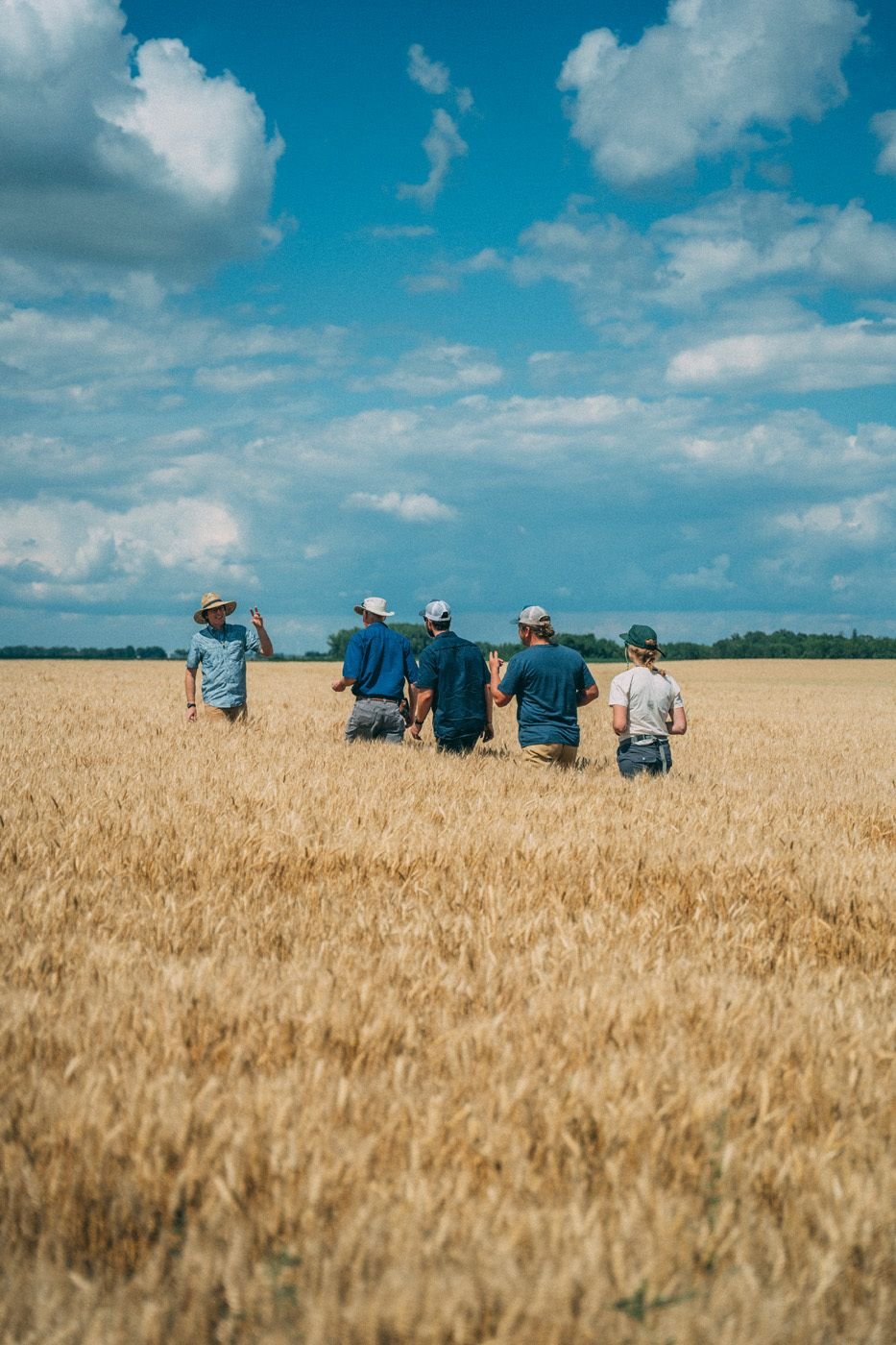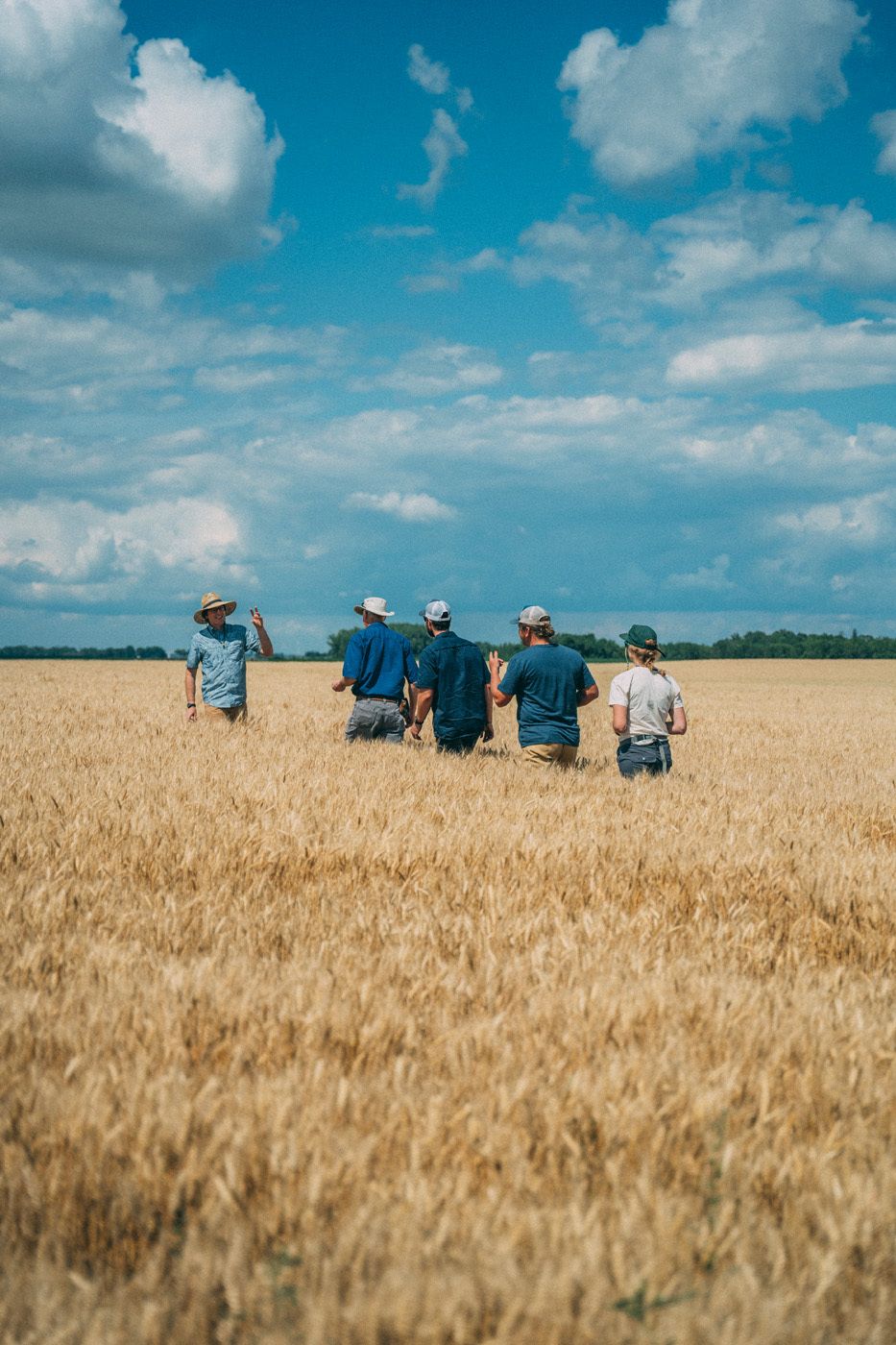
Impact credit firm Mad Capital has closed its Perennial Fund II (PFII) at $78.4 million, which the firm says is more than 7x its $10 million Fund I, which closed in 2021, bringing its total assets under management (AUM) to $100 million.
The fund provides US farmers with loans to help them transition to regenerative-organic farming practices and simultaneously boost farms’ long-term profitability. Mad Capital initially targeted $25 million for Perennial Fund II, but saw two upsizes due to “strong investor demand,” Mad Capital CEO and cofounder Brandon Welch tells AgFunderNews.
Early commitments came from The Rockefeller Foundation, impact investment platform Builders Vision, and the Schmidt Family Foundation, These helped attract additional investment from from Social Finance, Innovaciones Alumbra, the New Mexico Finance Authority, Bedari Collective, the McConnell Foundation, and others, totaling 111 investors.
“We are aiming to build a bridge between two distant worlds that need one another to transition our food system – Wall Street and organic farmers,” says Welch. “Providing farmers with access to capital gives humanity a shot at producing an abundance of healthy food while being ecologically accountable to our working lands and those that steward them.”
Mad Capital provides access to capital for smaller farming operations that otherwise might not be able to secure a bank loan.
Traditional lending has historically been designed for conventional, large-scale farms. A small farm transitioning to regenerative-organic is a substantially riskier bet in the eyes of lenders, which makes it much more difficult for these farmers to access capital via the usual routes.
As a private credit firm, Mad Capital can equip the farm with a customized financing package to help them both during and after the transition.

What’s driving momentum for regen finance
Part of what’s driving the momentum behind Mad Capital’s latest fund is an uptick in interest in the food system that’s steadily grown since around 2020, says Welch.
More people outside of the agrifood industry now know the term “regenerative agriculture” and have some familiarity with issues in the food system and why there’s a need to reduce chemicals and raise healthier crops and animals, for example.
“It’s becoming much more normal to see investment opportunities in the regenerative agriculture space, which means more family offices, foundations, and individuals are interested in not just thinking about traditional public equities, bonds, and venture, but they’re looking at the full spectrum of investing into new asset classes,” he notes.
There are macro tailwinds, too.
“Valuations have been increasing rapidly since the bottom in 2009, and investors are trying to capture some of those gains and secure the gains they have achieved over the last decade. They’re rotating into more defensive positions, and one way to do that is to get access to private credit, especially private credit in an uncorrelated asset class.”
Conceptualization of Fund III is already underway, the company says, with the leading concept being “a semi-liquid, evergreen fund designed to scale into a vehicle exceeding $500 million to attract institutional investors seeking impact forward and uncorrelated yield.”
“As a fund manager, we’ve hit the scale and track record where there is now a lot more confidence around the types of loans we can originate and the risk-return we’re able to produce,” says Welch.
“It’s been four and a half years since the first loan we originated, and we have a $0 0% loss rate as a company thus far. We’ve been able to continue scaling a high-performing portfolio.”
The post Mad Capital closes $78m oversubscribed fund to bridge the gap between Wall St. and regen ag appeared first on AgFunderNews.